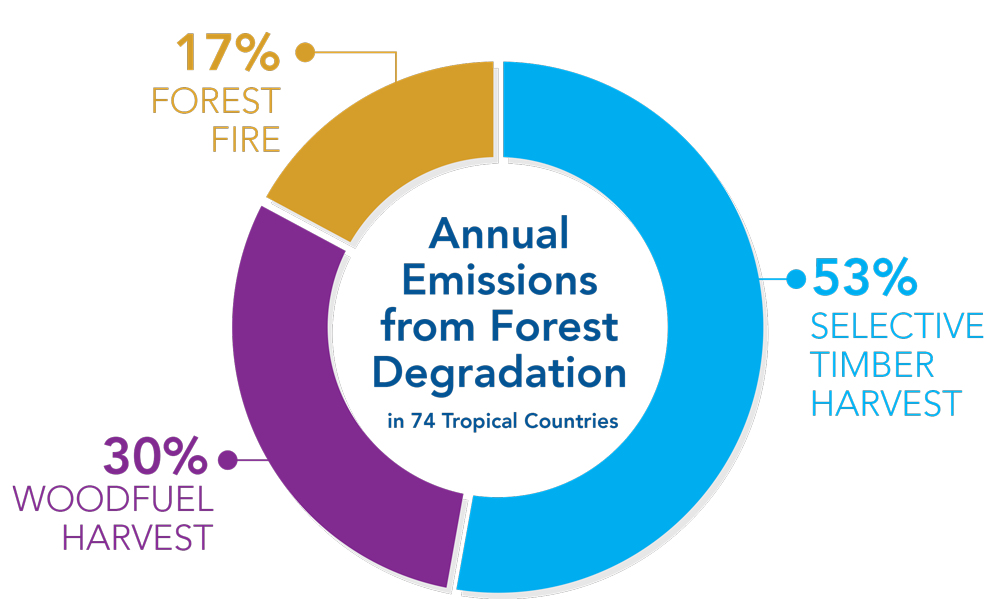
Winrock Scientists Pinpoint Source of Carbon Emissions Greater than Global Aviation
Study of Forest Degradation in 74 Tropical Countries Highlights New Opportunity to Mitigate Climate Change
WASHINGTON, D.C. – FEB. 21, 2017 – Scientists from Winrock International have published the first consistent and complete analysis of emissions from forest degradation across the tropics. Forest degradation consists of logging, harvesting woodfuels and other human impacts on forests that fall short of deforestation. The new study, published in the journal Carbon Balance and Management, shows that in 74 tropical countries the amount of carbon released as a result of forest degradation is equivalent to 4.3 percent of total global emissions and almost five times greater than the emissions from global aviation.
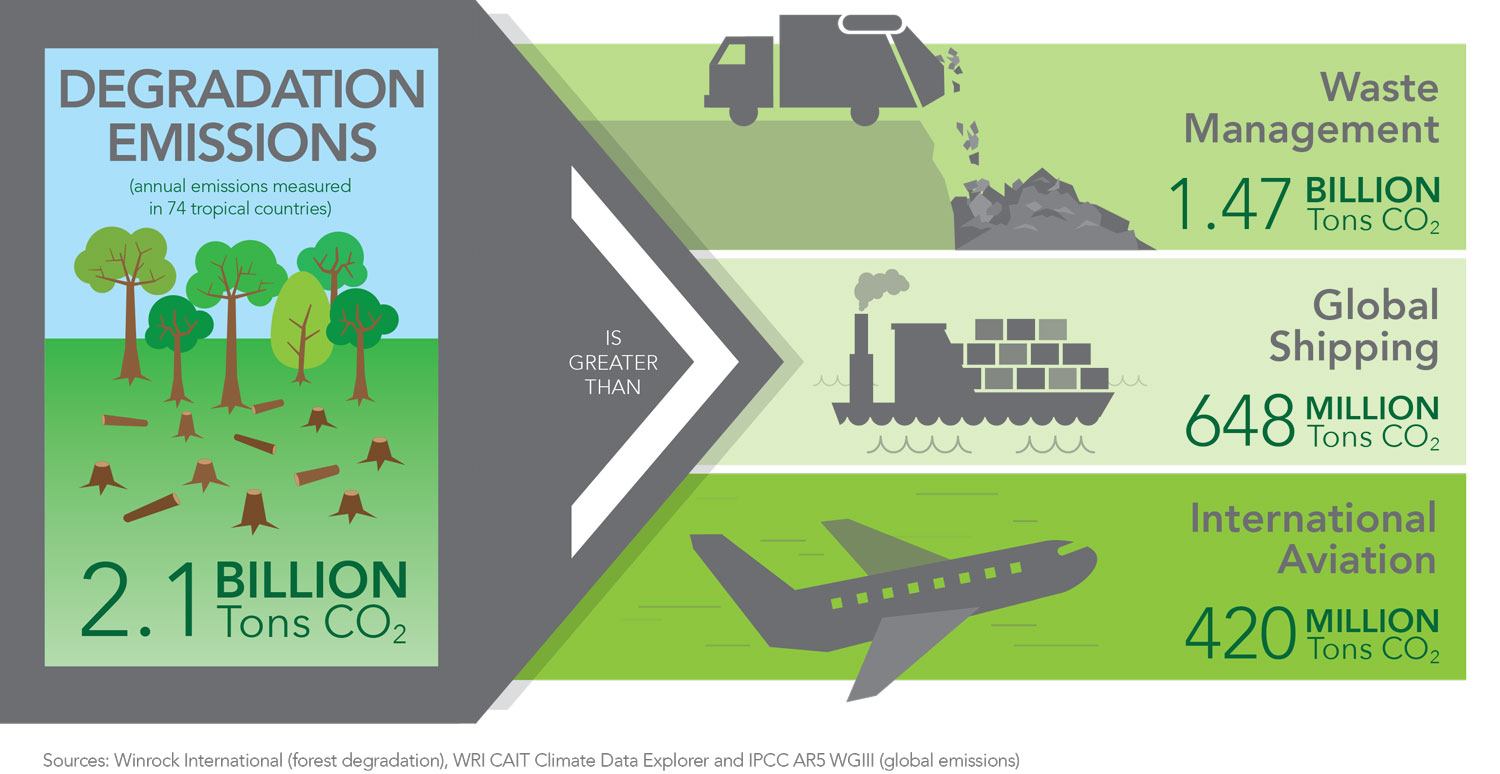
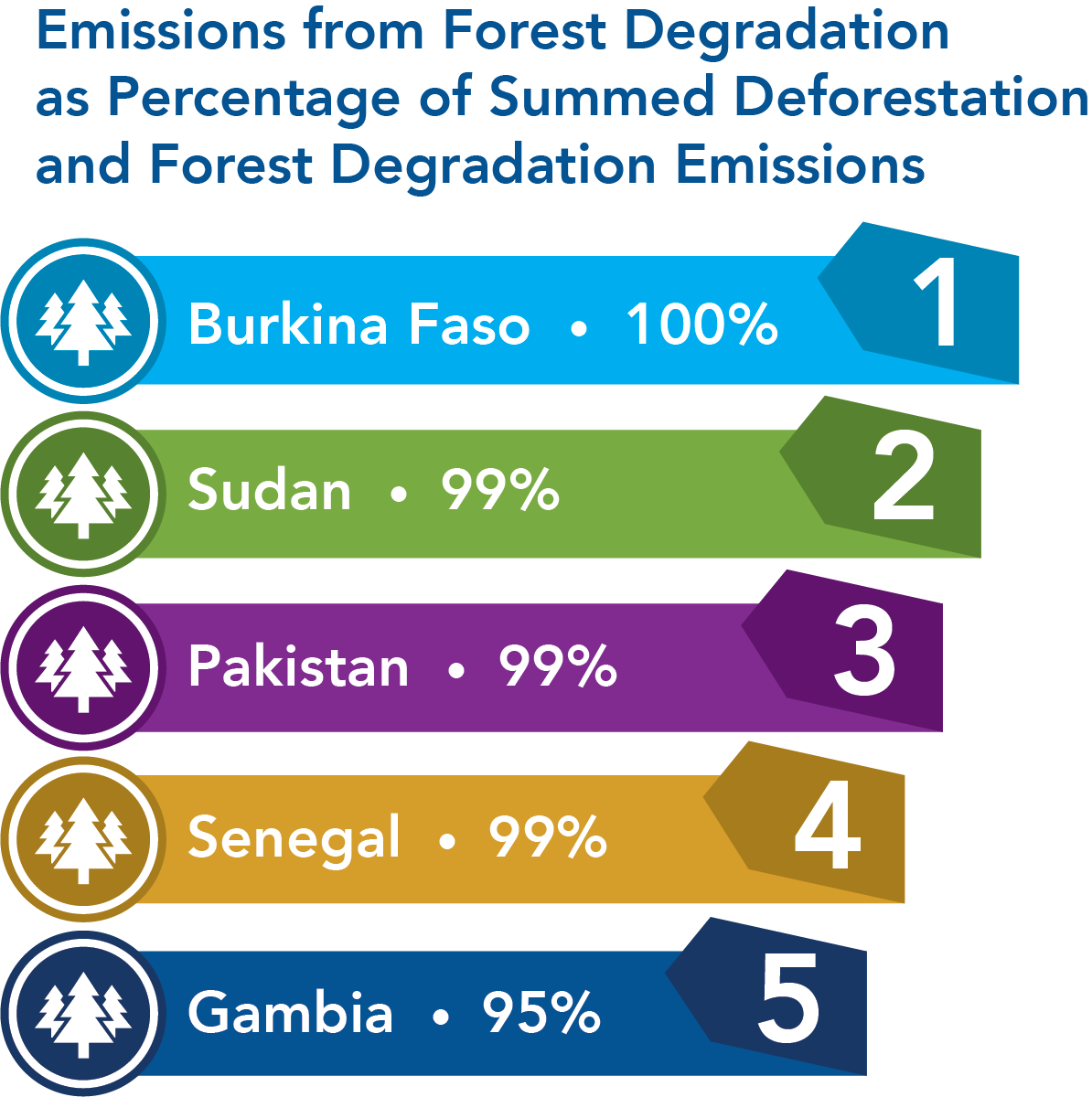 “This study is an important step toward a more comprehensive understanding of the role of forest degradation in global emissions and the opportunity to mitigate its impact,” says lead author Dr. Timothy Pearson, director of Winrock’s Ecosystem Services Unit. “With this data the international community can plan for greenhouse gas emission reductions and the sustainable use of forest resources.”
“This study is an important step toward a more comprehensive understanding of the role of forest degradation in global emissions and the opportunity to mitigate its impact,” says lead author Dr. Timothy Pearson, director of Winrock’s Ecosystem Services Unit. “With this data the international community can plan for greenhouse gas emission reductions and the sustainable use of forest resources.”
While deforestation has been widely studied, degradation is much harder to detect. This is the first time it has been quantified in such a complete, consistent way, with Winrock scientists combining approaches and datasets to assess forest degradation activities in a uniform manner.
The findings show that emissions from tropical forest degradation exceed the total annual emissions of all but the seven highest emitting countries — and are equal to about a third of the emissions from deforestation.
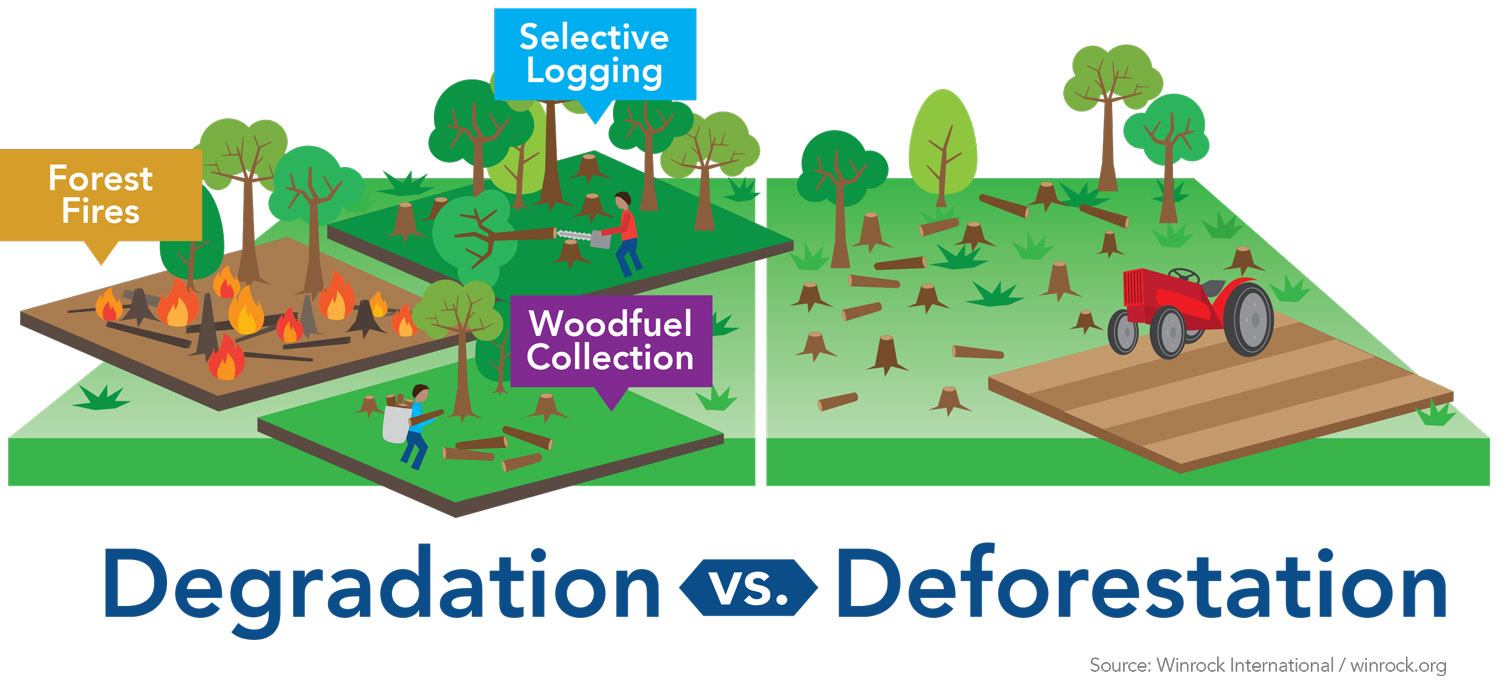
The study highlights an important opportunity to mitigate climate change, which can benefit the poorest populations and most highly endangered ecosystems. “Forest degradation occurs where humans directly interact with forests for resources, lives and livelihoods,” Pearson says. “We can’t put a fence around forests, but knowledge and planning can help us to make sustainable use of forests and forest resources.”
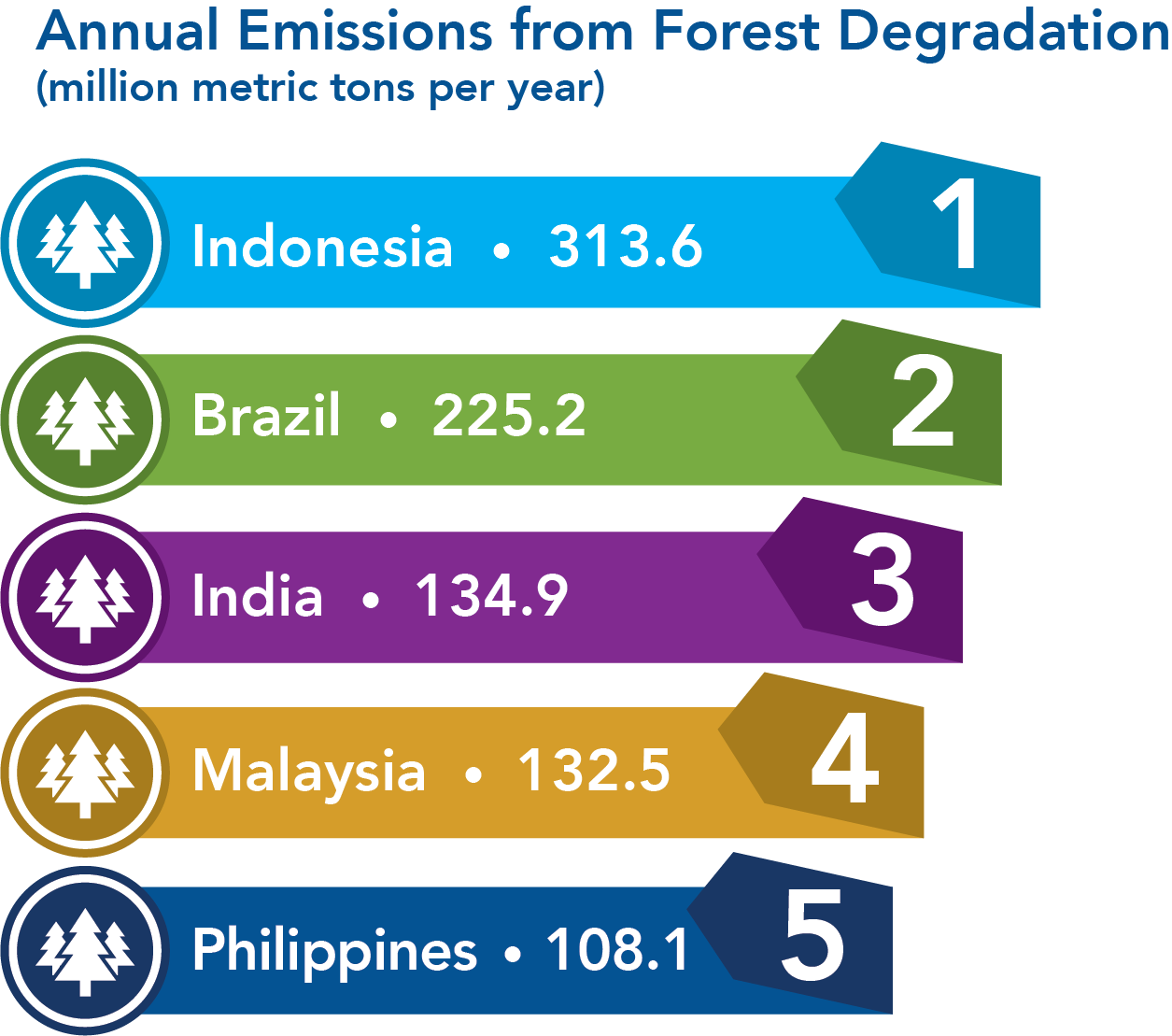 The paper represents some of the last completed work by the late legendary scientist Dr. Sandra Brown, former director and senior scientist of Winrock’s Ecosystem Services Unit. “Forest degradation has been a critical yet unknown element of the global carbon cycle,” Dr. Brown said upon completion of the assessment. “This study for the first time puts a number to the emissions.”
The paper represents some of the last completed work by the late legendary scientist Dr. Sandra Brown, former director and senior scientist of Winrock’s Ecosystem Services Unit. “Forest degradation has been a critical yet unknown element of the global carbon cycle,” Dr. Brown said upon completion of the assessment. “This study for the first time puts a number to the emissions.”
 The findings demonstrate the large role forest degradation plays in global land use emissions, with the total emissions from degradation comprising 25 percent of the combined emissions from degradation and deforestation. Among the forest degradation activities assessed, timber harvesting had the largest impact (53 percent), followed by woodfuel (30 percent) and fire (17 percent). Regional patterns also emerged, with emissions from woodfuel having the largest impact in East Africa, South Asia and Indonesia; the magnitude of timber harvesting emissions highest in Brazil and Indonesia; and emissions from fire most notable in the Democratic Republic of the Congo and parts of the Brazilian Amazon. The article is open access and is available at the following URL: http://rdcu.be/pfzy
The findings demonstrate the large role forest degradation plays in global land use emissions, with the total emissions from degradation comprising 25 percent of the combined emissions from degradation and deforestation. Among the forest degradation activities assessed, timber harvesting had the largest impact (53 percent), followed by woodfuel (30 percent) and fire (17 percent). Regional patterns also emerged, with emissions from woodfuel having the largest impact in East Africa, South Asia and Indonesia; the magnitude of timber harvesting emissions highest in Brazil and Indonesia; and emissions from fire most notable in the Democratic Republic of the Congo and parts of the Brazilian Amazon. The article is open access and is available at the following URL: http://rdcu.be/pfzy
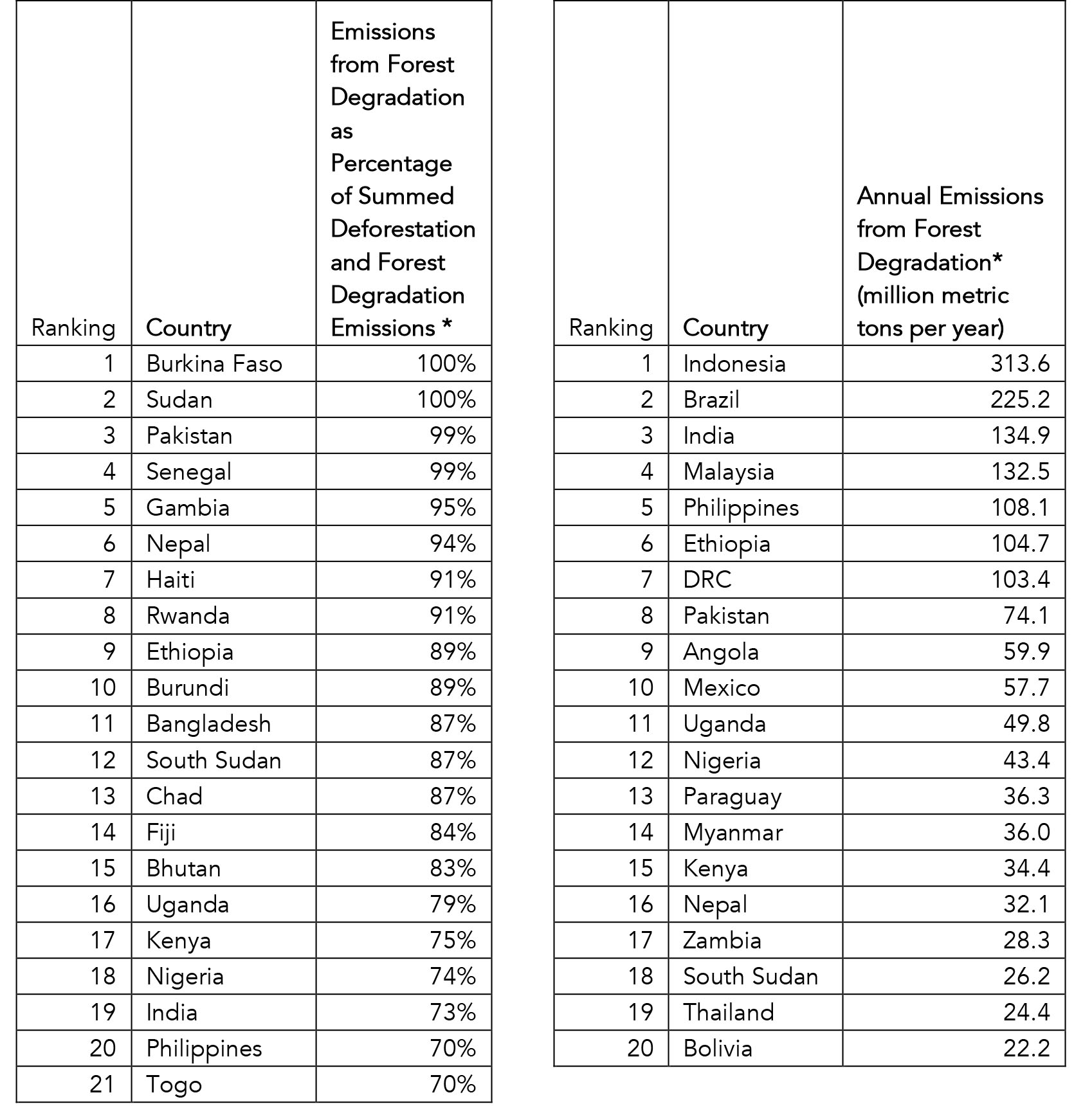
ABOUT WINROCK INTERNATIONAL
Winrock is a recognized leader in U.S. and international development with a focus on social, agricultural and environmental issues. Inspired by its namesake, Winthrop Rockefeller, Winrock combines scientific and technical expertise with entrepreneurial innovation to deliver market-based solutions that improve lives around the world. Winrock’s mission is to empower the disadvantaged, increase economic opportunity and sustain natural resources across the globe.
###
